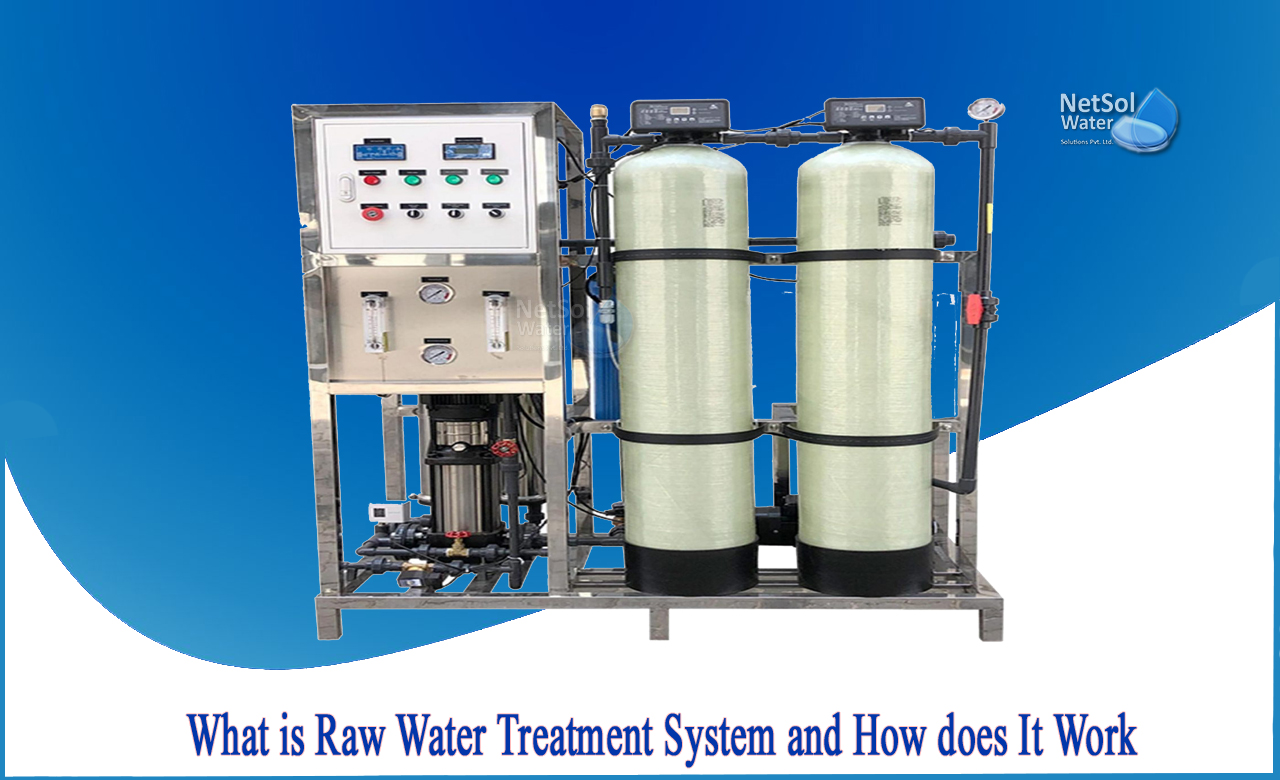What is raw water treatment system and How does it work?
Raw water treatment systems are frequently required for industrial companies that use a raw water supply for their facility to ensure an effective process and a high-quality product. The best raw water treatment system will assist the facility avoid costly plant downtime, high maintenance costs, and the inability to sell its products in the market, among other concerns.
What is a raw water treatment system?
A raw water treatment system is a collection of technologies that work together to meet your specific raw water treatment requirements. Raw water treatment is rarely a static process, and a raw water treatment system that is designed to accommodate changes in treatment needs will go a long way toward avoiding costly replacements and upgrades down the road. A well-designed and effective raw water treatment system should be capable of handling:
>Seasonal turbidity and flow variations
>Alterations in water chemistry requirements and needed chemical quantities
>Modifications in the requirements for water quality (such as the quality of feed water required for a new boiler)
What does a simple raw water treatment system include?
The exact components of a raw water treatment system are dependent on the quality of water being pulled from in comparison to the quality of water required, however in general, a simple raw water treatment system will include:
>To aid in the flocculation or coagulation of any suspended materials, use a chemical feed.
>To settle out the bigger solids, use a clarifier.
>Filtering to get rid of the tiny particles
>Panel of control (depending on the level of automated operation needed).
These conventional components are normally acceptable depending on the needs of your plant and process; however, if your plant requires a system with a little more customisation, you may need to add additional features or technologies.
What is normally removed by a raw water treatment system?
A raw water treatment system could include the technologies required to eliminate any of the following contaminants:
>Suspended and colloidal solids can generate aromas in food and beverage foods, foul process equipment, and waste energy at your facility.
>Silica and colloidal silica frequently clog and scale boiler equipment, reducing plant efficiency and contaminating products.
>Iron coats fixtures, clogs industrial processes, and gives products a bad flavour and odour.
>Bacteria can cause illness and serious stomach disorders, as well as coat cooling tower components.
>Hardness coats equipment fixtures, blocks pipes, scales machinery, and creates sludge build-up.
Operation of a raw water treatment system_
The steps in a typical raw water treatment facility may vary, however they usually comprise the following:
Intake of untreated water
Raw water (naturally occurring untreated water) can come from a variety of places, including rivers, lakes, oceans, and groundwater. When an industrial operation pulls water from a surface water source, it is usually filtered (through pipes or gravity) via a mesh screen or grate to remove bigger things like twigs, leaves, and fish. The water is then piped to the main treatment facility, where it begins to be treated.
Coagulation
After all of the large objects have been removed from the raw water source, a reaction tank is used to remove the bulk suspended particles and other impurities. This procedure begins with a series of mixing reactors, usually one or two that add specialised chemicals to remove all of the finer particles in the water by combining them into larger particles that settle out. Aluminium-based coagulates, such as alum and poly-aluminium chloride, are the most extensively employed. A modest pH change may also aid in the coagulation of the particles.
Flocculation
After coagulation, the water enters a flocculation chamber, where the coagulated particles are slowly swirled together with long-chain polymers (charged molecules that grasp all the colloidal and coagulated particles and pull them together), resulting in visible, settleable snowflakes.
Sedimentation
The gravity settler (or sedimentation phase of the raw water treatment process) is a big circular device in which flocculated particles and water flow into the chamber and circulate outwards. The water rises to the top and overflows at the clarifier's perimeter in a gradual settling process, allowing the solids to sink to the bottom and form a sludge blanket. The solids are then raked into a cylindrical tube in the centre of the clarifier, where they are slowly mixed and the sludge is pumped out of the bottom into a sludge-handling or dewatering process.
Filtration
In most cases, the water overflow is directed into gravity sand filters. These filters are large areas where two to four feet of finely crushed silica sand with jagged edges is placed. Thesand is usually deposited at a depth of two to four feet in the filter, where it packs securely. After that, the feed water passes through, trapping the particles.
Disinfection
After the water has passed through the gravity sand filter, the bacteria in the water is usually disinfected or chlorinated.
Distribution
If raw water treatment is utilised in an industrial process, it is usually piped into a holding tank where it can be used according to the facility's needs. If the treated water is for municipal use, it is frequently pumped into a loop of water towers and various collection and distribution systems that runs around the city.
Lime softening process and ion exchange processes are the other possible processes employed in raw water treatment process.
For more information, contact Netsol Water.
Netsol Water is Greater Noida-based leading water & wastewater treatment plant manufacturer. We are industry's most demanding company based on client review and work quality. We are known as best commercial RO plant manufacturers, industrial RO plant manufacturer, sewage treatment plant manufacturer, Water Softener Plant Manufacturers and effluent treatment plant manufacturers. Apart from this 24x7 customer support is our USP. Call on +91-9650608473, or write us at enquiry@netsolwater.com for any support, inquiry or product-purchase related query.



